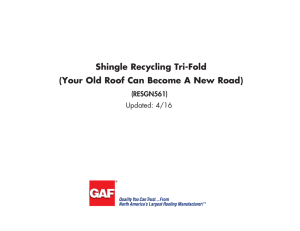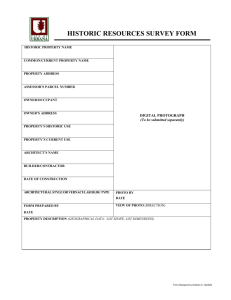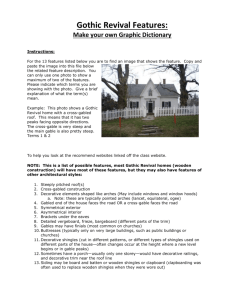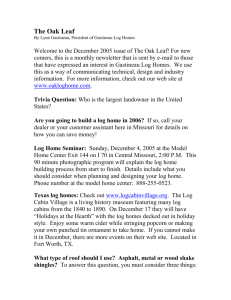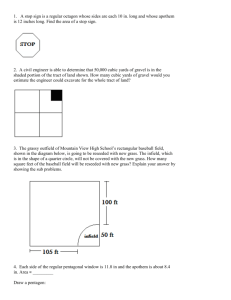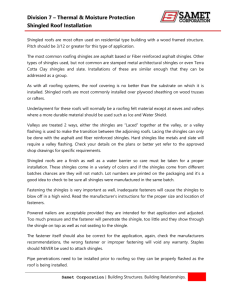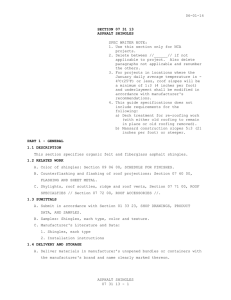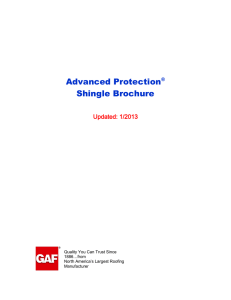Fast Fact: Industrial Nonwovens Asphalt Roof Shingles Made with
advertisement
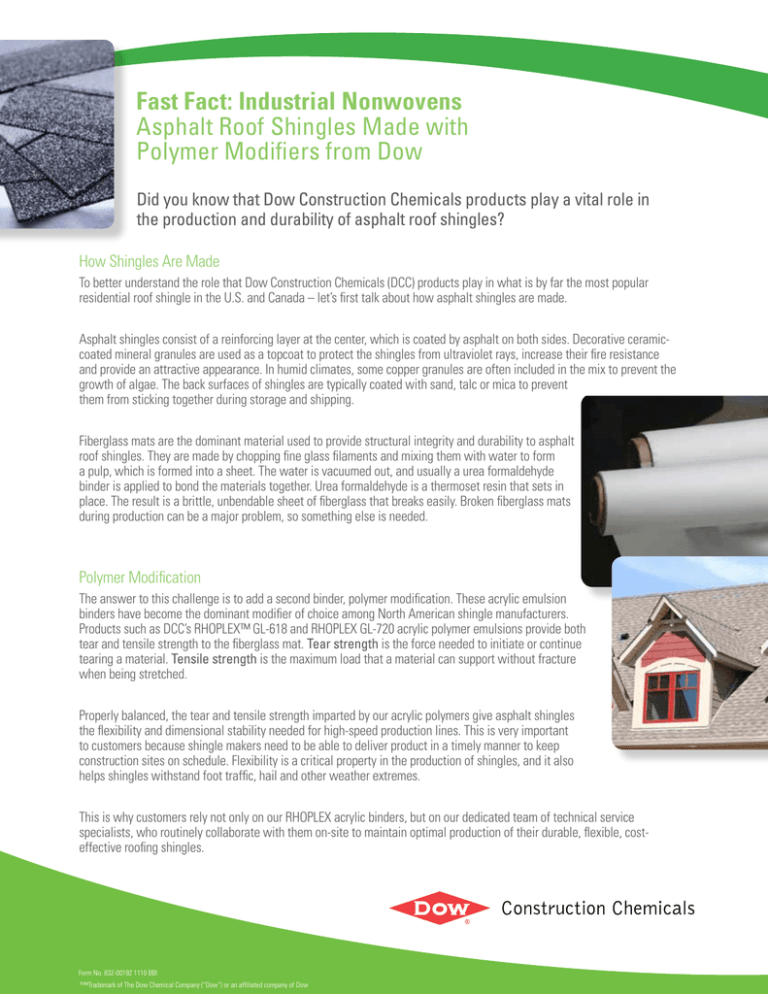
Fast Fact: Industrial Nonwovens Asphalt Roof Shingles Made with Polymer Modifiers from Dow Did you know that Dow Construction Chemicals products play a vital role in the production and durability of asphalt roof shingles? How Shingles Are Made To better understand the role that Dow Construction Chemicals (DCC) products play in what is by far the most popular residential roof shingle in the U.S. and Canada – let’s first talk about how asphalt shingles are made. Asphalt shingles consist of a reinforcing layer at the center, which is coated by asphalt on both sides. Decorative ceramiccoated mineral granules are used as a topcoat to protect the shingles from ultraviolet rays, increase their fire resistance and provide an attractive appearance. In humid climates, some copper granules are often included in the mix to prevent the growth of algae. The back surfaces of shingles are typically coated with sand, talc or mica to prevent them from sticking together during storage and shipping. Fiberglass mats are the dominant material used to provide structural integrity and durability to asphalt roof shingles. They are made by chopping fine glass filaments and mixing them with water to form a pulp, which is formed into a sheet. The water is vacuumed out, and usually a urea formaldehyde binder is applied to bond the materials together. Urea formaldehyde is a thermoset resin that sets in place. The result is a brittle, unbendable sheet of fiberglass that breaks easily. Broken fiberglass mats during production can be a major problem, so something else is needed. Polymer Modification The answer to this challenge is to add a second binder, polymer modification. These acrylic emulsion binders have become the dominant modifier of choice among North American shingle manufacturers. Products such as DCC’s RHOPLEX™ GL-618 and RHOPLEX GL-720 acrylic polymer emulsions provide both tear and tensile strength to the fiberglass mat. Tear strength is the force needed to initiate or continue tearing a material. Tensile strength is the maximum load that a material can support without fracture when being stretched. Properly balanced, the tear and tensile strength imparted by our acrylic polymers give asphalt shingles the flexibility and dimensional stability needed for high-speed production lines. This is very important to customers because shingle makers need to be able to deliver product in a timely manner to keep construction sites on schedule. Flexibility is a critical property in the production of shingles, and it also helps shingles withstand foot traffic, hail and other weather extremes. This is why customers rely not only on our RHOPLEX acrylic binders, but on our dedicated team of technical service specialists, who routinely collaborate with them on-site to maintain optimal production of their durable, flexible, costeffective roofing shingles. Form No. 832-00192 1110 BBI ™Trademark of The Dow Chemical Company (“Dow”) or an affiliated company of Dow ®

